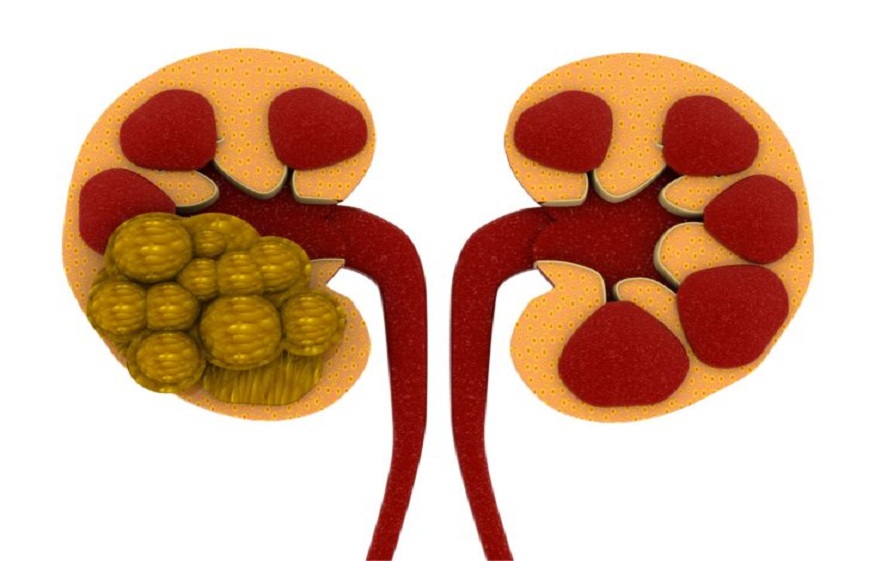
Renal colic
Renal colic is a pain that occurs when stones block your urinary tract. It is a highly painful condition.
The urinary tract consists of kidneys, ureters, bladder, and urethra. The stones in the first place are formed in the kidneys due to the deposition of minerals. From there, they can travel in the urinary tract, causing obstruction and eventually pain. The size of stones may vary from little granules to a golf ball. The increasing size may make it problematic to get rid of it.
Pain associated with renal colic may appear at one side or both. It may start from the back and radiate towards the front. If you are diagnosed with kidney stones, you must visit a urologist in Lahore to avoid an emergency.
Symptoms
Renal colic occurs in episodes, each of almost 20 to 60 minutes. The signs and symptoms of renal colic are;
- Intense pain in the lower abdomen that starts from the back and radiates to the front.
- Nausea
- Vomiting
- Pain while passing urine
- Burning in passing urine and after
- Blood in urine
- Urgency to urinate
- Increased frequency of urination
- Feeling of pressure while urinating
- Cloudy appearance or froth in urine
- Foul smell from urine
- Urinating less than usual
- Passage of gravel in urine
- Renal colic can cause urinary tract infection, which causes fever, palpitations, laziness, and burning in urine.
Causes
The cause of renal colic is a stone that forms in the kidneys and dislodges from there. The prevalence of kidney stones is increasing day by day. They can occur due to;
- A diet rich in oxalate containing foods like tomatoes
- A protein-rich diet that contains eggs, chickens, and lentils
- Not drinking enough water
- Dehydrating yourself in the form of sweat and vomiting
- Metabolic disorders like hyperparathyroidism, due to which the tendency of kidney stones formation increases
- Repeated urinary tract infections
- Obesity
Treatment
You must consult with a healthcare provider if you have any of the symptoms of kidney stones or renal colic. To confirm, your doctor will get your tests done. Mostly, an ultrasound, urine-detailed analysis, and a CT scan are done to finalize the diagnosis of renal colic.
For treatment, there are options like;
Extracorporeal shock wave lithotripsy (ESWL)
In this procedure, the healthcare providers use a high beam of energy that breaks the stones present in your kidneys. After that, they will pass in the urine. The advantage of this procedure is that it is a non-invasive procedure.
Ureteroscopy
In this procedure, the doctor will insert a scope (that emits light) from the urethra to the urinary bladder and remove the stones.
Percutaneous nephrolithotomy
In this procedure, the healthcare providers will give an incision on your back and remove the stones through an instrument. It is an invasive procedure, that is done under the effect of anesthesia. So, you do not feel the pain.
In the meanwhile, the doctor may prescribe you NSAID painkillers and opioids to get rid of the pain. A muscle relaxant may also help if muscle spasm is there. If you have a urinary tract infection along with renal colic, then you will have to take antibiotics as well. Make sure you complete the course of antibiotics as prescribed by your doctor.
Prevention
For the prevention of renal colic, you must prevent kidney stones formation. For that, you can practice the following tips.
- Drink more than ten glasses of water in a day.
- Do not eat a protein-rich diet.
- Limit oxalate containing foods in your diets like rhubarb, tomatoes, and nuts.
- Visit your doctor frequently and do not prolong the symptoms.
Conclusion
Having kidney stones and passing them is a very painful procedure. Therefore, you must drink plenty of water so that they may break and pass out on their own. Renal colic is a situation of extreme pain that occurs when a stone obstructs the urinary tract, hence blocking the passage of urine.
People who get kidney stones are at higher chances of getting them again in the next five years of their life. If you suffer from recurrent urinary tract infections or have kidney stones, you must visit the best urologist in Lahore.

